GET HAPPY – FEED YOUR BRAIN!
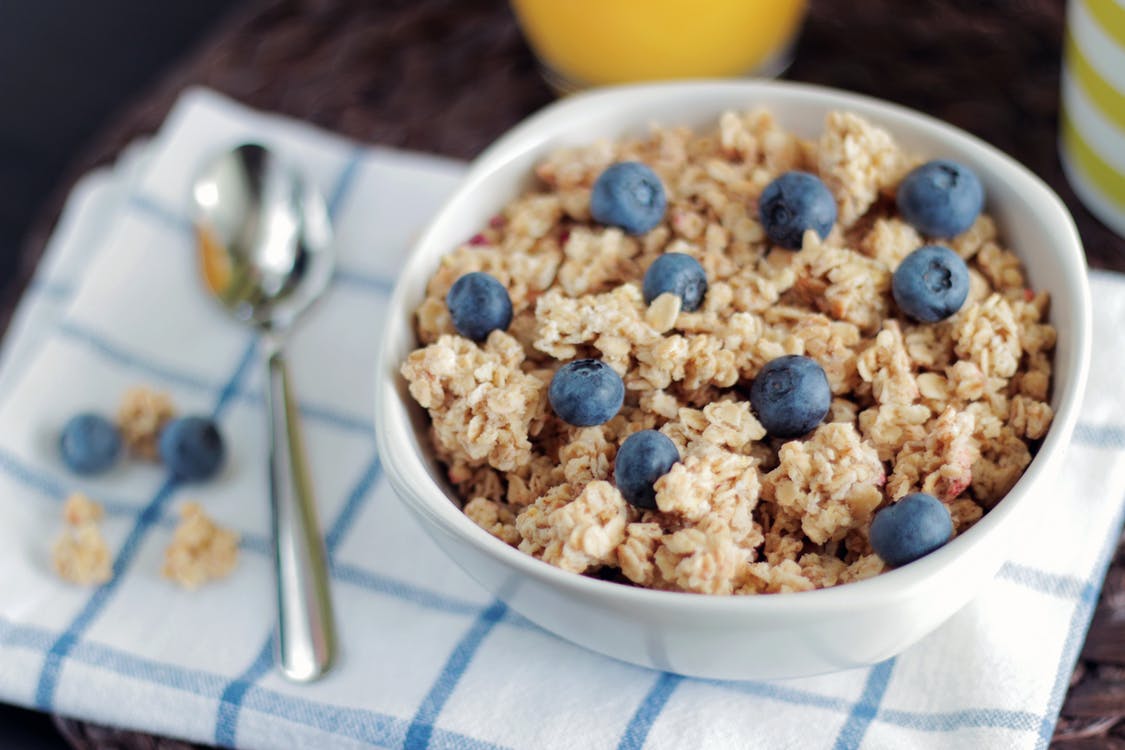
Food and mental health.
This month will culminate with Bell Let’s Talk day focussing on mental health awareness on January 31st! I absolutely love that this has become a regular day of focus and fundraising for Canadians. I also love the recent news about significant funding being made available for mental health research and treatment in Canada. As we all have come to learn, mental health issues are probably the fastest rising health concern among young people now. Usually, this conversation is wrapped in discussion about technology and it’s impact on our well-being. While I don’t doubt that for a second, DIET is equally important and has just as significant an impact on our mental health.
Most of us have someone close to us who has suffered from anxiety or depression. Sadly, many of us even know many young people, teenagers, to be specific, who are battling the demons of anxiety and being diagnosed and treated for depression. Our modern lives are certainly full of stressful components. It’s no secret that there is tremendous talk in therapeutic circles about the relationship between our ever-growing connected-ness through technology and social media and our ever-growing disconnect from real life relationships. So, let’s say that we accept these analyses. So, now what?
It seems odd to me though. There have certainly been more stressful times throughout history – World Wars and the The Great Depression come to mind. So, can it be something else?
As a nutritionist, I view the brain as simply another human organ. It is remarkable in it’s capacity and truly an elastic wonder, but still, it needs certain conditions to function optimally, just like every other part of our anatomy. There is tremendous power in the idea of Mind Over Matter. I am a strong believer in our ability to change the world around us just by changing our mind.
As Jimi Hendrix said “To Change the World, you must change your mind”
There is a tremendous amount of research currently underway to understand the relationship between optimal nutrition and brain function. With brain diseases and dysfunction like Alzheimer’s and Dementia as well as mental illnesses on the rise, it’s no wonder that this area is being explored.
Some of the findings include study outcomes that have implicated a relatively low intake of fish, Omega 3 fatty acids and fruits and vegetables as risk factors for depression. As a nutritionist, this is not surprising at all. However, I know that most people do not consider diet or nutritional status when diagnosed with depression. It is much more common for us to turn to external factors that affect our mental state. That has been the ‘status quo’ in terms of our paradigm for understanding mental illnesses. However, we also acknowledge that there are chemical checks and balances that are required in order to have optimal brain function. Generally speaking though, none of us takes into account what factors exist that affect those chemical checks and balances.
The truth is that stress, sleep, activity levels and yes, yes, yes, the foods you eat and your body’s ability to make use of those nutrients are exactly what affects those chemical imbalances.
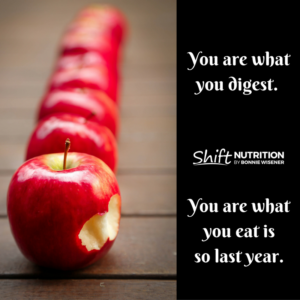
I know this doesn’t sound like rocket science, and that reading this, you might even be saying to yourself…”I know that”. So, which of those factors have you taken the time to actually change? Most people I know, and clients I have worked with, do not take the time to consider these factors, and rather just say “yes, please” when offered anti-depressants to help them to feel better. I understand this. Many years ago, I was one of the people to fall into that category. It’s tough to pick up your bootstraps and make some changes during times when we are most under duress, or feel at our weakest.
It’s no secret that a standard North American Diet is full of refined sugar, chemicals and often very little real food. This is sad on so many levels, and we are experiencing the impact of that throughout every aspect of our health. Studies consistently demonstrate that diets rich with whole foods, Omega 3 fatty acids, and fruits and vegetables have a positive impact on our mental health, with participants’ experiencing reduced symptoms of depression with dietary intervention.
Our SAD (Standard American Diet) is also to blame for increased incidences of all sorts of digestive disease and impairment.
The Canadian Digestive Health Foundation (CDHF), reports that approximately 2 million Canadians suffer from digestive disorders. By contrast, heart disease which is one of the leading causes of death, reportedly affects about 1.3 million Canadians each year. Digestive disease and disorders are essentially an epidemic, yet, do most of us even recognize how important good digestion is to our overall health? Proper digestion is the key to abundant good health. Eighty percent of our immune system cells reside in our “gut”. That should tell us something. The actual digestive process begins in the mouth (chewing), and ends in the anus (excretion). It is an automatic process that we really don’t give much thought to, until something goes wrong. And it is going wrong in Canada. Remember, you are what you eat, but you really are the byproduct of what you digest. If you suffer from any of the digestive ailments listed below, you suffer from some form of digestive impairment.
• Barrett’s Esophagus
• Celiac Disease
• Colon Cancer
• Constipation
• Crohn’s Disease
• Diarrhea
• Diverticular Disease
• Esophageal Cancer
• Gastroesophageal reflux disease (GERD)
• Inflammatory Bowel Disease (IBD)
• Irritable Bowel Syndrome (IBS)
• Lactose Intolerance
• Pancreatitis
• Peptic Ulcer
• Ulcerative Colitis
The Standard American Diet (SAD) and lifestyle is a breeding ground for digestive breakdown. Right from the start, as we rush to eat lunch at our desks, or grab a coffee and bagel or muffin at a drive through, we are setting ourselves up for digestive problems. The myriad of digestive problems lead to inflammation, which is the preamble to disease.
Click here to get tips on how to improve digestion:
5 Simple Tips for Improved Digestion
Why am I telling you this, and why is it relevant?
Did you know that your gut is considered your “second brain.”
And because of the new scientific discoveries about the vagus nerve, the enteric nervous system, and the amazing influence your gut microbes can have, it’s no wonder what you eat feeds not only your body but can directly affect your brain.
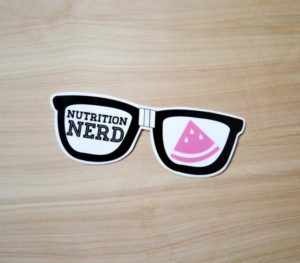
What exactly is the “gut-brain connection.”
There seem to be multiple things working together. Things like:
- The vagus nerve that links the gut directly to the brain;
- The “enteric nervous system” (A.K.A. “second brain) that helps the complex intricacies of digestion flow with little to no involvement from the actual brain;
- The massive amount of neurotransmitters produced by the gut;
- The huge part of the immune system that is in the gut, but can travel throughout the body; and,
- The interactions and messages sent by the gut microbes.
In detail that means…
Vagus nerve
There is a nerve that runs directly from the gut to the brain.
And after reading this so far, you’ll probably get a sense of which direction 90% of the transmission is…
Not from your brain to your gut (which is what we used to think), but from your gut up to your brain!
The enteric nervous system and neurotransmitters
The gut has more nerves than your spinal cord? And that’s why it’s referred to as the “second brain.”
It’s no wonder since your gut, as the “second brain” has some pretty complex communication processes. It controls the process of digestion, from secreting digestive enzymes, to breakdown and absorption of nutrients, controlling the flow of food, etc., it has to function pretty intelligently.
Guess how these nerves speak to each other, and to other cells? By chemical messengers called “neurotransmitters.”
In fact, many of the neurotransmitters that have a strong effect on our mood are made in the gut! A whopping 95% of serotonin is made in your gut, not in your brain!
The immune system of the gut
Because eating and drinking is a huge portal where disease-causing critters can get into your body, it makes total sense that much of our defense system would be located there too, right? Seventy-five percent of our immune system is in our gut!
The immune cells can move throughout the entire body and cause inflammation just about anywhere.
Well, if they’re “activated” by something in the gut, they can potentially wreak havoc anywhere in the body. Including the potential to cause inflammation in the brain.
Gut microbes
Your friendly neighborhood gut residents. You have billions of those little guys happily living in your gut. They do amazing things like help you digest certain foods, make certain vitamins, and even help regulate inflammation!
But more and more evidence is showing that changes in your gut microbiota can impact your mood, and even other, more serious, mental health issues.
How do these all work together for brain health?
The honest answer to how these things all work together is that we really don’t know just yet. More and more studies are being done to learn more.
But one thing is becoming clear. A healthy gut goes hand-in-hand with a healthy brain!
So, how do you feed your brain?
Of course, a variety of minimally-processed, nutrient-dense foods is required, because no nutrients work alone.
But two things that you many consider eating more of are fiber and omega-3 fats. Fiber (in fruits, veggies, nuts & seeds) help to feed your awesome gut microbes. And omega-3 fats (in fatty fish, walnuts, algae, and seeds like flax, chia, and hemp) are well-known inflammation-lowering brain boosters.
If you would like to download your copy of ‘Nutrients for Brain Health – nutrients and selected foods that support brain health, please click link below –
Yes, I want my copy of Nutrients for Brain Health
Try these AMAZING brain-boosting recipes!
Tip: Your gut microbes love to eat the fiber in the blueberries, oats, seeds, and nuts. Meanwhile, your brain loves the omega-3 fats in the seeds and nuts.
Blueberry Hemp Overnight Oats
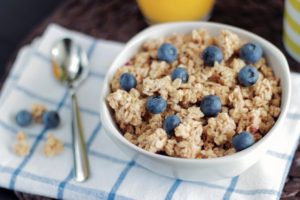
Serves 2
What you need:
1 cup blueberries (fresh or frozen)
1 cup oats (gluten-free)
1 cup almond milk
1 tablespoon chia seeds
2 tablespoons hemp seeds
½ teaspoon cinnamon
1 banana, sliced
¼ cup chopped walnuts
What you do:
- Blend blueberries in the food processor until smooth.
- Mix blueberries, oats, almond milk, chia seeds, hemp seeds in a bowl with a lid. Let set in fridge overnight.
- Split into two bowls and top with cinnamon, banana, and walnuts.
Serve & enjoy!
LEMON AND HERB SARDINES
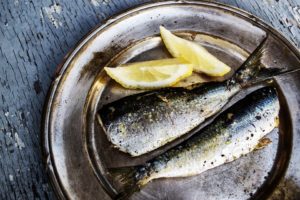
Serves 2
(end product does NOT look like this, looks more like a mixed salad)
You think you’re not a sardine lover, right? I get you. I swear that you will be after you try this delectable, easiest to make, impressive recipe by my friend Jill Hillhouse, co-author of the Paleo Diabetes Diet Solution.
What you need:
1 tbsp minced red onion
1 tbsp finely chopped fresh parsley
1 tbsp finely chopped fresh basil
2 tsp finely chopped fresh mint
1 tbsp grated lemon zest
4 tsp freshly squeezed lemon juice
1 tsp extra virgin olive oil
1 tsp dijon mustard
sea salt
1 can sardines packed in water, or olive oil, drained
What you do:
In a medium bowl, combine onion, parsley, basil, mint, lemon zest, lemon juice, oil and mustard. Season to taste with salt. Add sardines, flaking them with a fork and stirring to combine.
(Printed with permission)
Serve and enjoy!
xo

PS – If you would like some help improving your digestion and your mental health, and would like to start with what you are eating, please click here to contact me for a complimentary discovery session. https://bonniewisener.com/contact-4/
References:
National Institute of Mental Health. NIMH – Depression. http://www.nimh.nih.gov/health/publications/depression/complete-index.shtml
Statistics Canada. Canadian Community Health Survey – Mental Health and Wellbeing http://www.statcan.gc.ca/bsolc/olc-cel
http://www.health.harvard.edu/blog/nutritional-psychiatry-your-brain-on-food-201511168626
http://www.hopkinsmedicine.org/health/healthy_aging/healthy_body/the-brain-gut-connection
http://www.precisionnutrition.com/all-about-probiotics
http://www.precisionnutrition.com/fix-gut-fix-health
http://neurotrition.ca/blog/your-gut-bugs-what-they-eat-and-7-ways-feed-them

